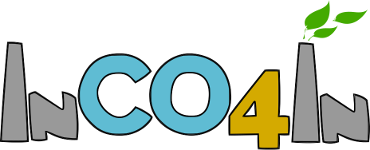Industry 4.0 is built around the idea of information integration to improve management and decisions at all levels. How these ideas are implemented is dependent of the different industry branches. In the process industry, it requires the integration of efficient modelling, simulation and optimal control of the whole plant with a software support of the information and an environment that allows the efficient execution of algorithms and implementation of decisions.
In this respect, the project Integrated plant wide control and optimization for Industry4.0 (InCO4In) aims at providing solutions to the theoretical and practical problems that the implementation of the Industry 4.0 concepts in the process industry may bring in plants under continuous, semi-continuous or batch modes operation by means of better information and better decision making in a framework of automated and smart systems.
Plant optimal control and scheduling under limited human intervention, demand reliable replica of the full plant (a model). Such model should be executed in real time, so to find optimal decisions concerning the process operation and product quality and safety. This calls for a reliable mathematical models of the processes. They form the basis for improving the information about the process by means of software sensors and simulation environment capable of reproducing the behaviour of the plant. Next, the main aims are how to made and integrate decisions at all levels, complying with production constraints, in order to optimize some targets in spite of disturbances and uncertainties and adapting production to changing demands and supplies.
The partners of this coordinated project have been working in problems of modelling, process control and optimization for many years with industrial partners and have experience in the field. They present this project with the will of continuing previous research and contribute to the development and extension of concepts and methods oriented to the solution of the mentioned problems. In particular, the proposal is placed in the fields of:
- Transforming data into useful information by means of appropriate models and software sensors covering also new, non-traditional fields.
- Using dynamic digital representations of the processes and factories as a container of structured information and as a help in decision making and training (digital twins).
- Developing advanced decision methods and taking into account their implementation by considering explicitly process-model mismatches and process uncertainty in their formulation, as well as their adaptation to changing conditions over time.
- Integrating different decision levels, in particular between control and optimization and between optimization and production scheduling, avoiding decision islands in the operation of a process factory.
- Considering the software structure that support the information and algorithms as a central part of the system that must also be integrated at all levels.
Furthermore, the proposal incorporates four industrial case studies of different fields used as a reference for the development of methods and systems:
- A hot pressing of medium-density fiber boards in a wood factory
- A large-scale hydrogen distribution network in an oil refinery
- A distillation column of an oil refinery
- A sterilization process of a tuna canning factory
Besides the participation of an important software company of the dynamic simulation sector.
Overall financial support is 304194€. This is distributed between each subproject: 174240€ for PGC2018-099312-B-C31 and 129954€ for PGC2018-099312-B-C33.
